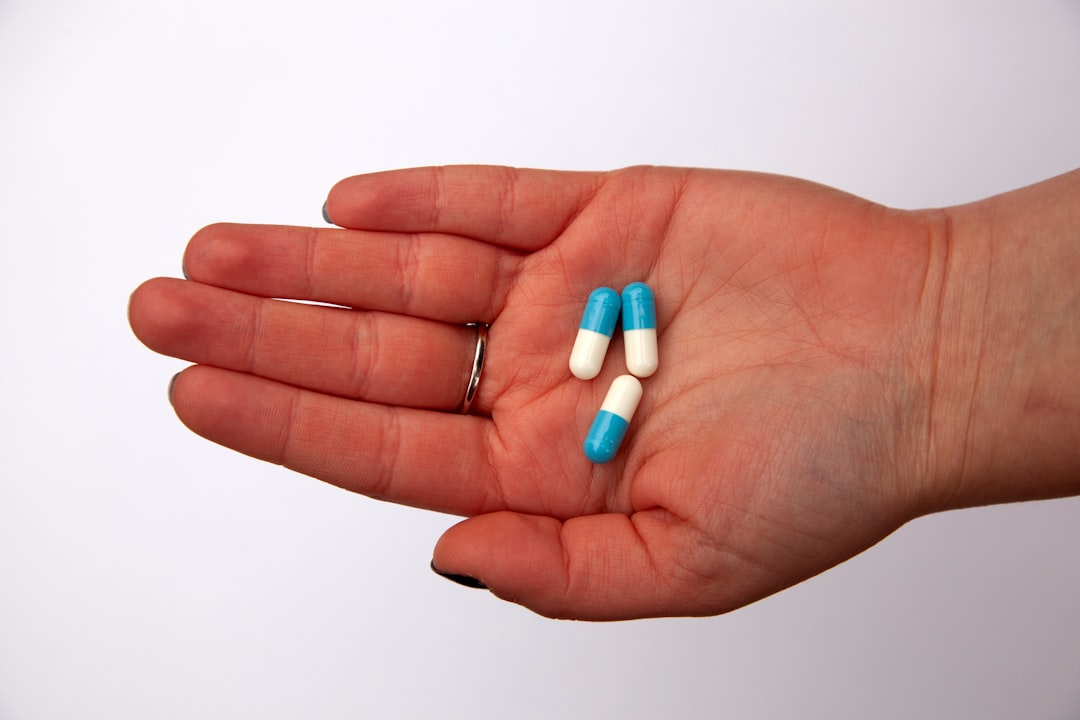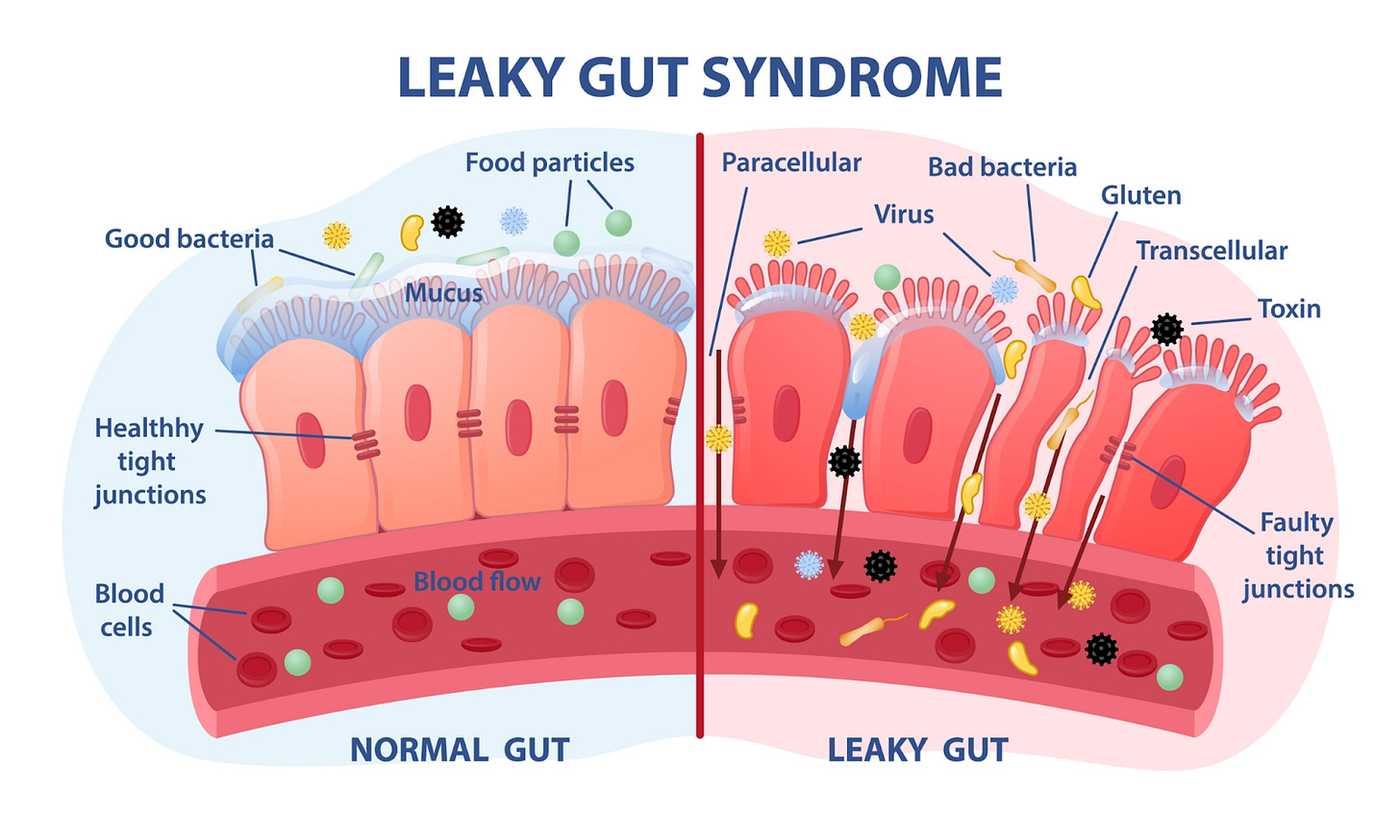The Dangers of Antibiotics
Negative consequences of antibiotic use on overall and long-term health
The weeks around New Year were very rough for me. Although I had been feeling great in December and I really felt like things were falling into place for the first time after a very difficult period during summer and autumn due to health problems, I got very sick the last week of 2022 with a very high fever and spent New Year’s Eve in bed.
Based on the symptoms, time of year, and how many people I knew were sick at the time, I thought I’d caught a bad flu virus, but because after five days my fever was still up to 39°C (102°F) at evenings and during the nights, and because rest, lots of herbal teas, painkillers and anti-inflammatory drugs didn’t lower it, I went to see a doctor.
He ran some tests and found out that I had a sinus bacterial infection. At that moment it made sense why I couldn’t lower the fever and why I couldn't get better despite everything that I had been doing. So based on the diagnosis, the treatment was obvious: antibiotics.
Antibiotics did their job: in a day the fever was gone and my body was slowly overcoming the disease, but at the same time antibiotic use left some negative consequences.
So in this article, we’re discussing antibiotics and their potential dangers and side effects.
Although it’s sometimes viewed as the villain, at the same time modern medicine is the thing that has allowed us the quality of life, longevity, and life expectancy that we experience today.
There’s no doubt about it: Without modern medicine, we probably wouldn’t be where we are now and antibiotics are one of the reasons behind this. After all, penicillin, the thing that revolutionized medicine and healthcare after its discovery, is also an antibiotic.

Antibiotics are a type of antimicrobial substance active against bacteria. They are used to treat or prevent some types of bacterial infections and work by killing bacteria or preventing them from spreading.
But everything comes with a caveat to it - even modern medicines and antibiotics in specific.
The Dangers of Antibiotics
Antibiotics are a double-edged sword: they can be quite useful but can also do a lot of harm.
There are a lot of studies that highlight the potential and prolonged dangers and side effects that the use of antibiotics can have on our overall health.
A recent 2022 systematic review and meta-analysis study looked at 160 observational studies investigating 21 outcomes in 22,103,129 children. Researchers found out that antibiotic exposure and use in children was associated with an increased risk of atopic dermatitis, allergic symptoms, food allergies, asthma, increased weight gain or overweight, obesity, psoriasis, autism spectrum disorders, and neurodevelopment disorders late on in subjects’ life.1
Why are antibiotics correlated to so many health problems and issues? Aren’t they something that kills bacteria and treats infections? The reason why they can be so detrimental to our overall and long-term health seems to lie in the gut.
Antibiotics and Gut Health
Experts believe that one of the reasons why antibiotics can be so detrimental to our health is their impact on our gut health.
Antibiotics - especially the stronger ones - can be very harmful to our digestion and gut health. Long-term or even a single use of antibiotics can have long-term consequences on the digestive tract and the functioning of digestion itself, which is proven by many studies.
Antibiotics can have a negative effect on intestinal flora. They can damage the intestinal wall or gut lining, which becomes more permeable - a condition called “leaky gut” - which causes a variety of problems:
chronic inflammation due to nutrients and toxins entering the bloodstream
digestion problems: indigestion, gas, bloating, constipation, diarrhea,
low energy, fatigue, mental health problems (anxiety and depression) and nutrient deficiency because of nutrients malabsorption and chronic inflammation,
joint pain and arthritis,
skin problems such as acne or eczema, and others.
Antibiotics can also have a negative effect on the gut biome.
The gut biome, microbiota or microbiome is an organism of unimaginable size: there are several billion living organisms - bacteria - living inside our gut: experts estimate that there are 10 times more gut bacteria than there are cells in the human body.
Antibiotics can destroy the good and beneficial bacteria and cause the bad ones to flourish. Bacterial dysbiosis - a negative ratio of good vs bad bacteria in the gut - can cause digestive problems, fatigue, mood disorders, mental health problems, bowel diseases (IBS and IBD), poor immune response and even obesity.2
Some studies have shown that just one dose of antibiotics has long-term consequences for the intestinal microbiota.3
So based on the evidence that we have it seems that the primary reason for antibiotic-related health problems is their impact on digestion and gut health which have a major role in our overall health and well-being.
My Experiences with Antibiotics
I can’t remember exactly when was the first time I started to learn and explore the dangers of antibiotic use, but when I did and looked back at my life, it made so much sense: my chronic gut and digestion problems began after my first antibiotic use.
I had almost no digestive problems until my teenage years. Then at age of 14 I got an ear infection during the family holidays in Spa and I was given very strong antibiotics. How strong those antibiotics were becoming apparent later: after the use of those antibiotics I lost all my physical fitness, strength, and endurance that I had built up until then. I also remember that for the first time in my life, I felt a little sad and melancholy without any real cause or reason.
In retrospect, it seems to me that this antibiotic treatment was the beginning of my digestive problems, which gradually escalated and got worse year over year.
After my recent use of antibiotics, I noticed a worsening in my digestion and gut health. Before the antibiotics, my gut and digestion were pretty good: I’d done a great job in the previous months of healing my digestion and gut from bloating, indigestion, GERD and reflux symptoms, leaky gut, and dysbiosis. But ever since the antibiotics, my overall digestion, and gut health got much worse: I’ve been having more indigestion of food, more bloat, and gut, my GERD and reflux worsened, my bowel movements are less regular, I’ve had less energy, more brain fog, etc.
One of the worst things that I experienced during and after the first days of antibiotic use was mental health issues.
Post-antibiotic anxiety, depression, and desperation are real and are a big deal!
I believe the root cause behind that was probably the impact of antibiotics on my microbiome. As I mentioned above, antibiotics can have a huge negative impact on the gut biome, they kill a lot of bacteria in the gut and that can trigger mental health problems since the gut and the brain are connected with the vagus nerve into the gut-brain axis.
The Post-Antibiotic Healing
I haven’t yet fully recovered from the impact of antibiotics, but I’m on a good path.
Because I had the knowledge of what was going on at that time and I knew that it would pass, I went through the initial difficult period more quickly and more unscattered as could have gone.
Soon after I ended the antibiotic use, I started the gut healing protocol to heal the damage that the antibiotics have done and restore the balance in my gut.
I lowered my expectations for myself and expected that it would take me and my body some time - and more than I would have liked to - to heal and get back fully.
I’ve also focused and worked a lot on my mental, emotional and spiritual health.
When we're healing and recovering, it's just as important to focus on our mental, emotional, and spiritual health as it is on our lifestyle and physical health!
I focused on steering my mind in the right direction, supported and worked on my emotions, harnessed the power of belief, vision, joy, passion, and purpose, and worked on strengthening my spiritual health.
One of the tools that helped me the most with mental, emotional, and spiritual health and well-being was the exercise called The Priming Exercise by Tony Robbins: I’ve been doing it a couple of times every week and it’s powerful!
I dare you to do it for a couple of days straight: I guarantee you that you’ll find a major difference in how you feel! It’s truly a game-changer!
Conclusion
Depending on the situation, the disease, and the condition, sometimes when you draw the conclusion, overall antibiotics have a negative return on investment: basically, they can do more harm than good.
Don’t get me wrong: I’m not against antibiotics and their use if they’re necessary. In my case, if I wouldn't have gotten the antibiotics, who knows how much longer I would have been sick. But at the same time, I was aware that they would probably do my body and gut some damage and that I would have to repair the damage that they’d done afterwards.
So my recommendation to you is that if your doctor in the future prescribes you antibiotics, be cautious: take a good probiotic supplement alongside them, expect that antibiotics might do you and your gut some harm, and do a gut healing protocol after the end of antibiotic use.
I’ll talk more about how to heal the gut and various gut healing protocols in future editions of Conquering Burnout, so make sure you’re subscribed so you don’t miss it!
Duong QA, Pittet LF, Curtis N, Zimmermann P. Antibiotic exposure and adverse long-term health outcomes in children: A systematic review and meta-analysis. J Infect. 2022 Sep;85(3):213-300. doi: 10.1016/j.jinf.2022.01.005. Epub 2022 Jan 10. Erratum in: J Infect. 2023 Jan;86(1):118. PMID: 35021114. https://pubmed.ncbi.nlm.nih.gov/35021114/
Kresser Chris, The High Price of Antibiotic Use: Can Our Guts Ever Fully Recover? https://chriskresser.com/the-high-price-of-antibiotic-use-can-our-guts-ever-fully-recover/
Dethlefsen L, Huse S, Sogin ML, Relman DA. The pervasive effects of an antibiotic on the human gut microbiota, as revealed by deep 16S rRNA sequencing. PLoS Biol. 2008 Nov 18;6(11):e280. https://pubmed.ncbi.nlm.nih.gov/19018661/ .




What a bummer! These seasonal illnesses can be such a pain. Here’s to a speedy recovery!
A couple circadian tips:
1. As the season progresses, getting smart UV exposure can help diversify your microbiome. I use the dminder app (http://dminder.ontometrics.com/features.html) to estimate Vit D potential and production while avoiding sunburn (sunscreen also blocks Vit D synthesis, so it’s not helpful for microbiome support or Vit D production). https://doi.org/10.1080/19490976.2020.1745044
2. Every day, the gut lining has the opportunity to repair itself, but it can only do so at night during the darkness. Therefore, keeping to a strict daylight-only eating schedule can ensure your body has nightly autophagy, which is what will heal the lining from disturbances and injury. https://doi.org/10.1093/nutrit/nux036
Hope you feel better soon, and thanks for sharing your healing journey!